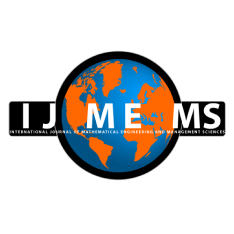Arvind Kumar
Department of Mathematics, Dyal Singh College, University of Delhi, Lodhi Road, New Delhi-110003, India.
Rajnish Kumar
Department of Mathematics, School of Basic Sciences & Research, Sharda University, Greater Noida-201306, Uttar Pradesh, Noida Institute of Engineering & Technology, Greater Noida, Uttar Pradesh, India.
Naresh Kumar
Department of Mathematical and Physical Science, School of Computer Science, University of Nizwa, Sultanate of Oman.
Khursheed Alam
Department of Mathematics, School of Basic Sciences & Research, Sharda University, Greater Noida-201306, Uttar Pradesh, India.
Ramu Dubey
Department of Mathematics, J. C. Bose, University of Science and Technology, YMCA Faridabad-121006, Haryana, India.
DOI https://doi.org/10.33889/IJMEMS.2023.8.1.009
Abstract
In this article, we formulate the concept of generalize bonvexity/pseudobonvexity functions. We formulate duality results for second-order fractional symmetric dual programs of G-Wolfe-type model. In the next section, we explain the duality theorems under generalize bonvexity/pseudobonvexity assumptions. We identify a function lying exclusively in the class of generalize pseudobonvex and not in class of generalize bonvex functions. Our results are more generalized several known results in the literature.
Keywords- Second-order, Symmetric duality, Fractional programming problem, Generalize bonvexity, G-Wolfe model.
Citation
Kumar, A., Kumar, R., Kumar, N., Alam, K., & Dubey, R. (2023). Generalized Second-Order G-Wolfe Type Fractional Symmetric Program and their Duality Relations under Generalized Assumptions. International Journal of Mathematical, Engineering and Management Sciences, 8(1), 142-162. https://doi.org/10.33889/IJMEMS.2023.8.1.009.



